Education
BNB Greenfield; bringing decentralized storage system to the BNB ecosystem
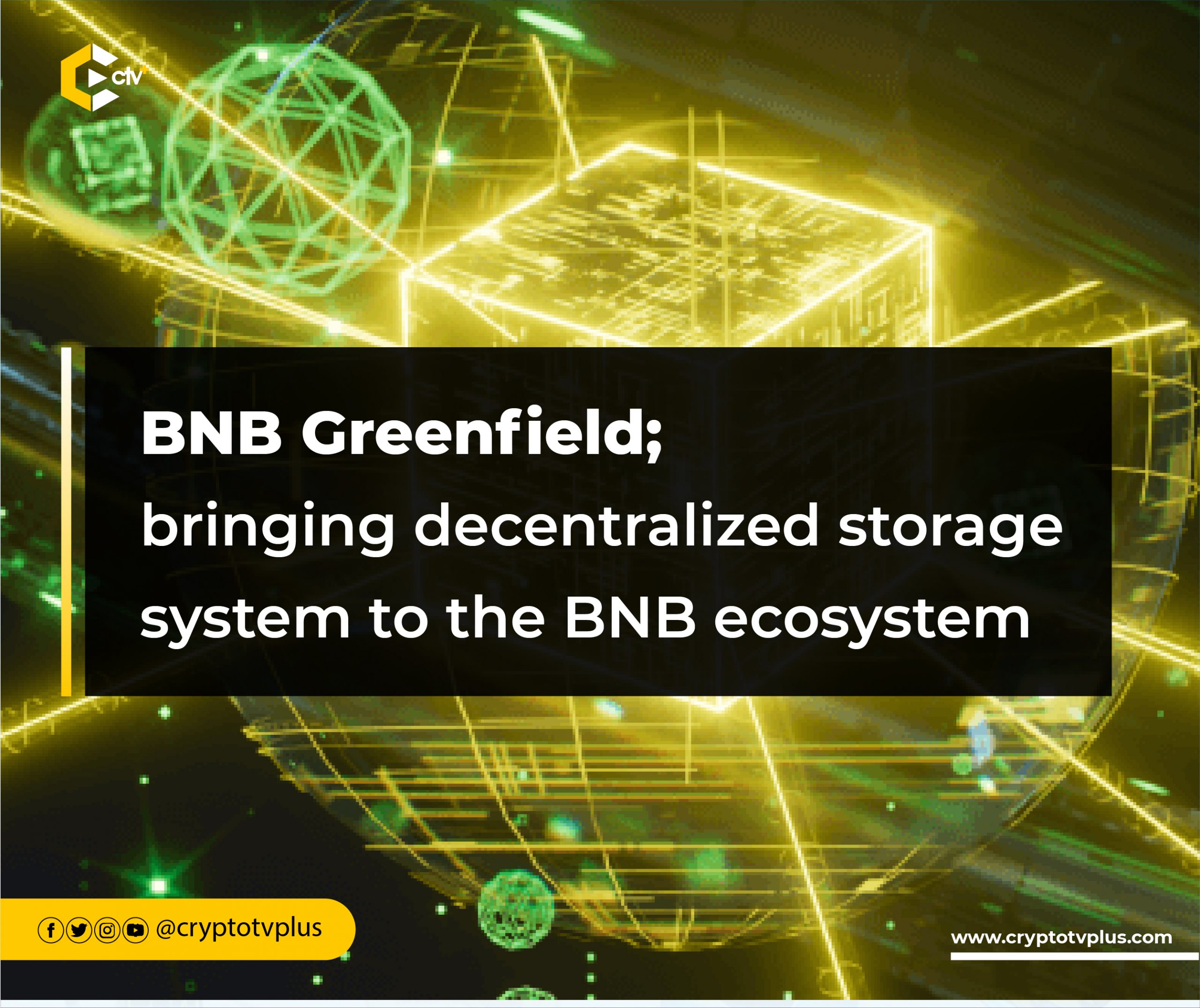
The BNB Greenfield is a new blockchain in BNB that aims to unleash the power of decentralized blockchain and storage technology on data ownership and the data economy. It has three main focuses:
- Enabling Ethereum-compatible addresses to create and manage both data and token assets,
- Linking data permissions and management logic onto BSC as exchangeable assets, and
- Providing developers with similar API primitives and performance as popular existing Web2 cloud storage.
It is expected to set up a platform and testing ground for new data economy and dApp models, which eventually become part of the foundation for Web3. Data assets become more valuable when shared and used, and are tradable.
Why decentralized data storage
Decentralized data storage refers to storing data in a distributed network of computers, rather than in a single central location. Data is divided and spread out among multiple nodes, with each node contributing storage. This allows for the storage of large amounts of data without relying on a central server or single controlling entity.
For many years, centralized data storage has been popular. This method involves storing data on a single server or cluster of servers managed by a particular provider. Cloud storage, for example, is often centralized, with data stored on servers controlled by companies such as Amazon or Google.
Proponents of centralized data storage argue that it enables easy management and access since all data is located in one place. Additionally, the responsibility for ensuring appropriate security measures and processes to back up and recover data falls on the centralized entity.
However, centralized data storage has its weaknesses. The concentration of all data in one location makes it an attractive target for hackers, and any issues with the central server can render all data inaccessible. This is where decentralized data storage offers a solution.
BNB Greenfield provides a decentralized storage infrastructure within the broader BNB Chain ecosystem. The idea is to help users and DApps to create, store, and exchange data with full ownership, and form a new data economy.
Decentralized data storage has several advantages over centralized data storage, such as improved security, resilience, user freedom and control, greater privacy, and market efficiency. It is spread across multiple nodes and has no single point of failure, allowing users to access data from other nodes.
How does Greenfield blockchain work
BNB Greenfield is a storage-oriented blockchain interacting with a decentralized network of storage providers (SPs). Users are required to upload their data with unique access and usage permissions which can be verified using the Proof-of-Challenge check on BNB Greenfield. Then, SPs store the data off-chain in a secure manner. This defines the core of the BNB Greenfield.
As data is stored in the decentralized data point on the BNB Greenfield blockchain, dApps built on the blockchain and in the entire BNB ecosystem can interact with these stored data. This brings real-time data utility and value for all dAppsdapp,s connected to the BNB Chain.
Components of BNB Greenfield blockchain
The BNB Greenfield blockchain uses Proof-of-Stake based on Tendermint-consensus for its own network security. Blocks are created every 2 seconds by validators, and BNB is the gas and governance token. Validator election and governance are based on a proposal-vote mechanism.
The address format of the blockchain is compatible with BSC and Ethereum, and EIP712 transaction signing and verification are accepted. Storage Providers (SPs) store the objects’ real data, and each SP runs its own object storage system.
SPs are immutable objects stored on the Greenfield blockchain. SPs must register themselves and provide publicly accessible APIs for users to upload, download, and manage data. There will also be a P2P-based upload/download network and user-end client software to facilitate easy connections and fast data download.
More SPs are welcome to ensure decentralization and data redundancy, but too many SPs may result in a lack of sustainability and profitability. Greenfield has an incentive design to make a proper number of SPs available.
Greenfield validators and SPs form a pair synergy to provide the whole storage service. Validators store the metadata and financial ledger with consensus, while SPs provide real data storage and downloading. Validators have the motivation to ensure enough good SPs to provide decent service, while users and SPs rely on a stable and decentralized Greenfield blockchain as a single source of truth on metadata.
Uses of BNB Greenfield
BNB Greenfield has the potential to unlock a range of possibilities and usher in a new wave of DApps. These include:
- Blockchain data storage: BNB Greenfield can be used to store dormant data from L1s and provide a cheaper option for L2 rollup transaction data, reducing L1 latency and improving data availability.
- Publishing: Authors can store their work on BNB Greenfield and sell them on BNB Smart Chain by granting read permissions to buyer addresses after receiving payment.
- Website hosting: Users can easily deploy their websites via BNB Greenfield, similar to Amazon S3, and manage their payments with BNB.
- Personal cloud storage: With private keys, users can create their own network drives using BNB Greenfield to upload and download encrypted files, photos, and videos via their desktop and mobile devices.
- Social media: BNB Greenfield provides the infrastructure for social media influencers and key opinion leaders to own their content and data. DApps can use this data for a fee and publish it to a public audience via a decentralized social network.
- Personal data market: Users can store encrypted personal data in their personal account on BNB Greenfield and grant permission for other applications to use it for a fee, ensuring data ownership and preventing abuse by centralized platforms.
BNB Greenfield presents a range of possibilities that can unlock new DApps, allowing users to own and manage their data in a decentralized and secure manner.
Future of BNB Greenfield
As the BNB Greenfield Testnet “Congo” is live, there are more developments on the way for the decentralized data storage project. According to BNBChain, the BNB Greenfield, which is designed to accommodate both Web2 and Web3 services and teams, will accept fees in BNB and the US dollar.
Read also;



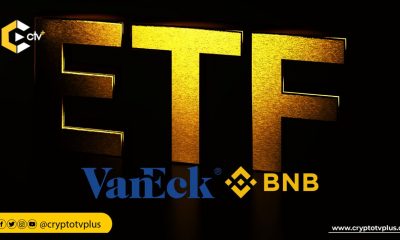

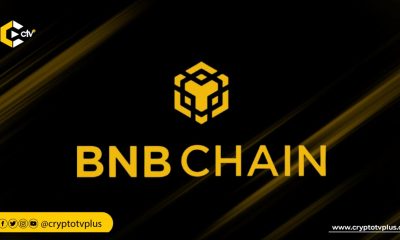

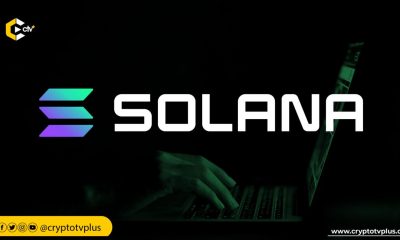

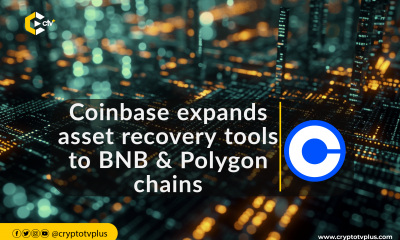

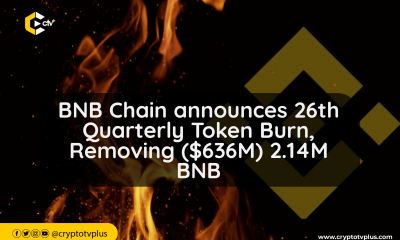

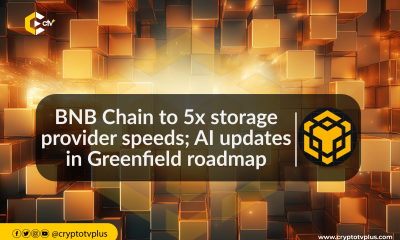











Pingback: BNB Greenfield; bringing decentralized storage system to the BNB ecosystem by Chuks Nnabuenyi Jr – CryptoTvplus Events: NFT, DeFi, Bitcoin, Ethereum, Altcoin Events